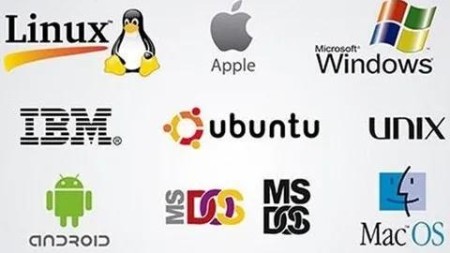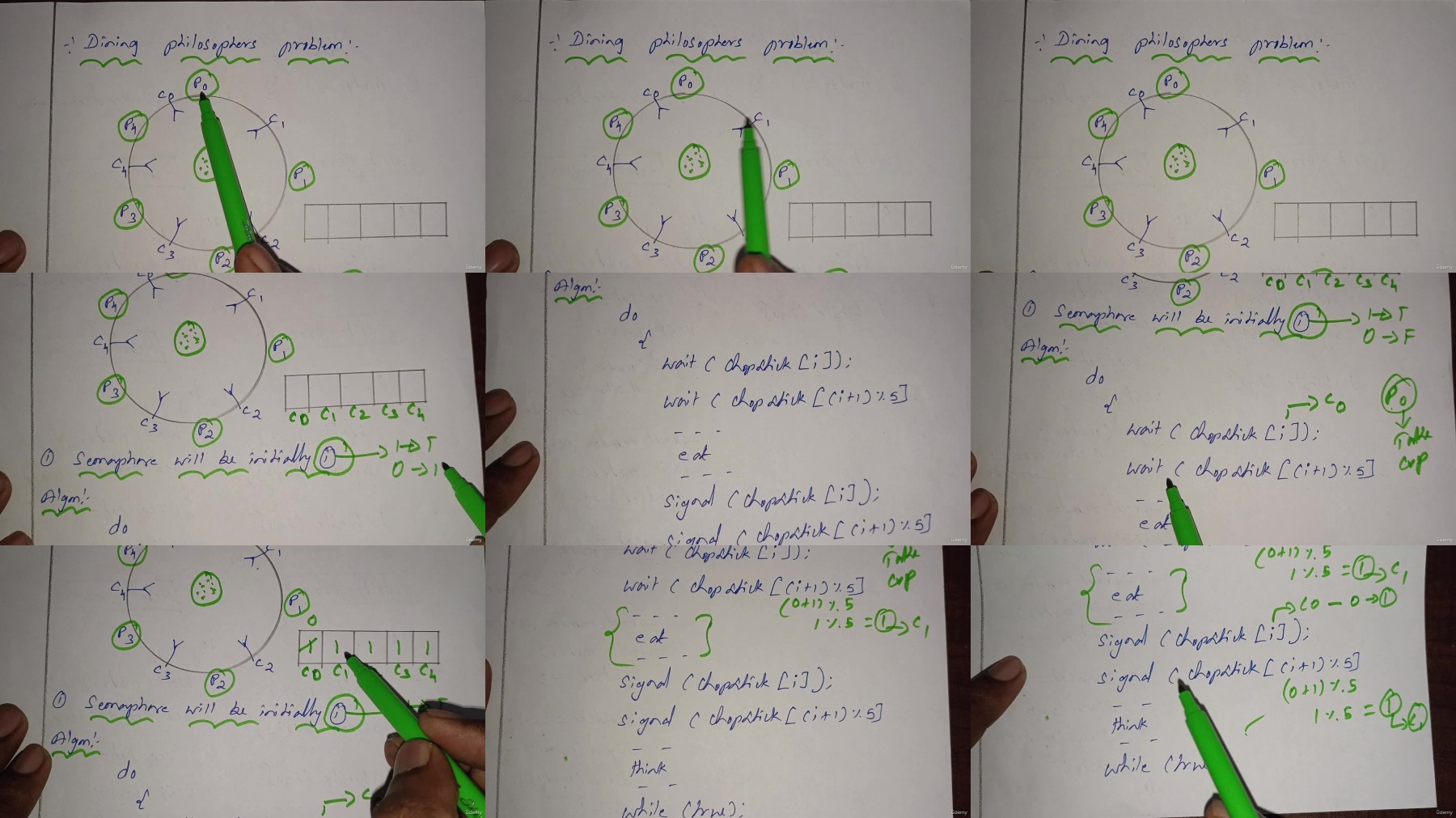Real-Time Operating Systems: Design And Implementation

Real-Time Operating Systems: Design And Implementation
Published 10/2024
MP4 | Video: h264, 1920x1080 | Audio: AAC, 44.1 KHz
Language: English | Size: 2.83 GB | Duration: 5h 36m
Process Synchronization, Process Scheduling, Deadlocks, Memory Management, Disk Scheduling
What you'll learn
Choose the relevant process and thread concepts for solving synchronization problems.
Implement different types of scheduling algorithms.
Exemplify various deadlock mechanisms.
Apply paging and segmentation in memory management and incorporate page fault handling, demand paging.
Demonstrate the storage management techniques through various File Management techniques.
Requirements
No Programming experience required.
Description
This course offers a comprehensive introduction to fundamental operating system concepts, focusing on key areas like process synchronization, scheduling, memory management, and disk handling. You will gain an in-depth understanding of synchronization techniques such as the Bounded Buffer Problem, Peterson's Solution, Mutex Locks, Semaphores, and the Reader-Writer Problem, which are critical for managing the coordination between multiple processes. The course also covers a wide range of scheduling approaches, including thread scheduling, real-time CPU scheduling, and multi-processor scheduling, all aimed at optimizing CPU resource allocation for better performance.In addition to process management, you'll dive into deadlock handling, learning methods to detect, prevent, and recover from deadlocks, ensuring system stability and efficiency. The course covers essential memory management techniques like swapping, segmentation, paging, and virtual memory, which are critical for efficient data handling. Practical strategies for implementing page replacement policies and avoiding thrashing are explored, giving you the tools to manage memory allocation effectively in high-demand situations.Disk management is another major focus of the course, where you'll learn about disk scheduling algorithms, RAID structures, and file system organization. The course emphasizes important aspects of file sharing and protection mechanisms to ensure secure and efficient file access and management.By the end of the course, you will have developed the skills and knowledge needed to tackle real-world operating system challenges. Whether you are a professional, developer, or a tech enthusiast, this course is ideal for those seeking to deepen their understanding of operating systems.
Overview
Section 1: Process Synchronization
Lecture 1 Introduction to Process Synchronization
Lecture 2 Bounded Buffer Problem
Lecture 3 Peterson Solution
Lecture 4 Test and Set Process
Lecture 5 Compare and Swap Instruction
Lecture 6 Mutex Locks
Lecture 7 Introduction to Critical section Problem
Lecture 8 Semaphores
Lecture 9 Reader Writer Problem
Lecture 10 Dining Philosopher Problem
Lecture 11 Dining Philosopher Problem using Monitors
Section 2: Process scheduling
Lecture 12 Basic Concepts, Scheduling Criteria
Lecture 13 FCFS Scheduling Algorithm
Lecture 14 Shortest Job First Scheduling algorithm
Lecture 15 Priority Scheduling algorithm
Lecture 16 Round robin scheduling algorithm
Lecture 17 Multilevel Queue Scheduling
Lecture 18 Multilevel Feedback Queue Scheduling
Section 3: Deadlocks
Lecture 19 Introduction to Deadlocks
Lecture 20 Deadlock Prevention
Lecture 21 Deadlock Avoidance
Lecture 22 Problems-Deadlock Avoidance
Lecture 23 Deadlock Detection
Lecture 24 Recovery from Deadlock
Section 4: Memory Management
Lecture 25 Swapping
Lecture 26 Paging, Structure of the Page Table
Lecture 27 Segmentation
Lecture 28 Page Fault and Steps in handling Page Fault
Lecture 29 Virtual Memory :Introduction
Lecture 30 Demand Paging
Lecture 31 Page Replacement Algorithms - FIFO
Lecture 32 Page Replacement Algorithms - Optimal Page Replacement
Lecture 33 Page Replacement Algorithms - LRU
Lecture 34 Allocation of Frames
Section 5: Disk Scheduling
Lecture 35 Introduction to Disk Scheduling
Lecture 36 FCFS-Disk scheduling
Lecture 37 SSTF-Disk scheduling
Lecture 38 SCAN-Disk scheduling
Lecture 39 LOOK-Disk scheduling
Lecture 40 CSCAN-Disk scheduling
Lecture 41 CLOOK-Disk scheduling
This course is tailored for undergraduate students pursuing degrees in computer science, information technology, or related disciplines. It is ideal for learners seeking to gain a solid foundation in the core principles and functions of modern operating systems.

FileAxa
https://fileaxa.com/kt4ix4m7fsir/Udemy_Real_Time_Operating_Systems_Design_and_Implementation_2024-9.part1.rar
https://fileaxa.com/x6tytvgfy31y/Udemy_Real_Time_Operating_Systems_Design_and_Implementation_2024-9.part2.rar
https://fileaxa.com/x0jn1n1g2zfl/Udemy_Real_Time_Operating_Systems_Design_and_Implementation_2024-9.part3.rar
DDownload
https://ddownload.com/k18mpxr8dnch/Udemy_Real_Time_Operating_Systems_Design_and_Implementation_2024-9.part1.rar
https://ddownload.com/g7gp4o9txyjs/Udemy_Real_Time_Operating_Systems_Design_and_Implementation_2024-9.part2.rar
https://ddownload.com/g0hcgyebzwln/Udemy_Real_Time_Operating_Systems_Design_and_Implementation_2024-9.part3.rar
RapidGator
https://rapidgator.net/file/4800b08c9fd413e88fa0a445feed546c/Udemy_Real_Time_Operating_Systems_Design_and_Implementation_2024-9.part1.rar
https://rapidgator.net/file/b47f78e6b325a42c24c9d11a85fbba27/Udemy_Real_Time_Operating_Systems_Design_and_Implementation_2024-9.part2.rar
https://rapidgator.net/file/d580da26dd0c569701dc73d31b2b4429/Udemy_Real_Time_Operating_Systems_Design_and_Implementation_2024-9.part3.rar
FileStore
TurboBit
https://turbobit.net/zcxrfh0dl330/Udemy_Real_Time_Operating_Systems_Design_and_Implementation_2024-9.part1.rar.html
https://turbobit.net/zvip7omg4nkb/Udemy_Real_Time_Operating_Systems_Design_and_Implementation_2024-9.part2.rar.html
https://turbobit.net/tecbuz39kpa4/Udemy_Real_Time_Operating_Systems_Design_and_Implementation_2024-9.part3.rar.html
